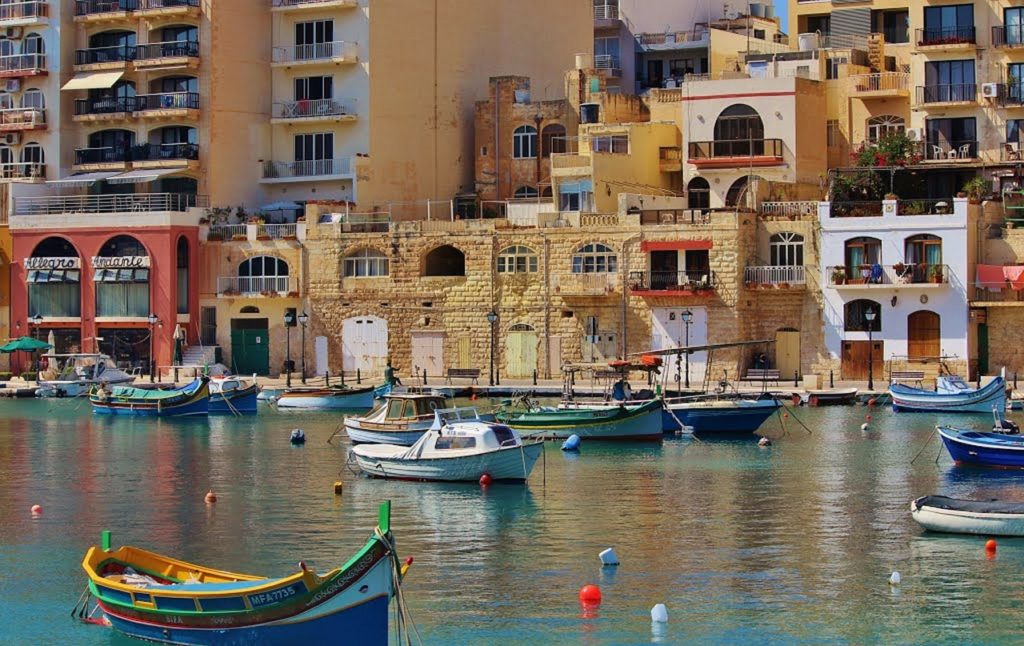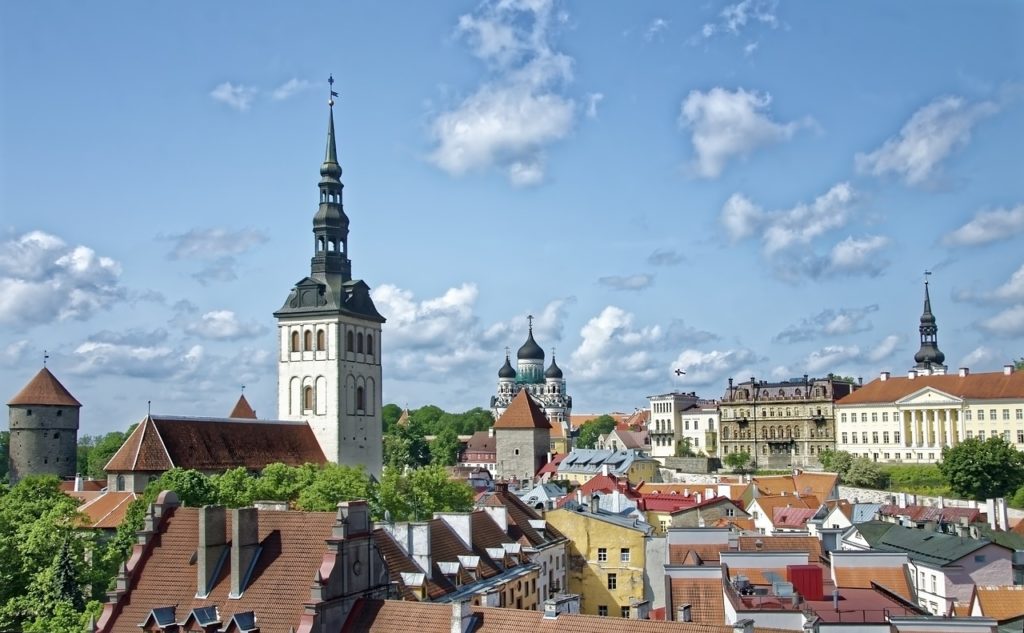We have a few bans against cryptos around the world, but we also have a lot of governments being more flexible, and even friendly with this entire ecosystem. That’s why a good number of startups, entrepreneurs, and individuals have decided to move into these crypto-friendly countries, where they can thrive and grow.
However, it’s worth noticing that “friendly” doesn’t mean lawless. These territories also have their own laws and regulations for the use of this kind of asset, including (or not) some taxes. Let’s check them quickly.
Malta
Often known as the “Blockchain Island”, Malta is the smallest nation in the European Union. It’s a tiny island in the Mediterranean Sea, close to Italy, with less than 500.000 official residents. Considered as an advanced economy, this constitutional republic produces a lot of limestones, but it’s also very focused on finances, technology, and investments. And into being a crypto-friendly country, it seems.

In July 2018, this island became one of the first nations regulating cryptocurrencies to promote their use without crimes. To make it possible, its parliament passed three bills about it: The Digital Innovation Authority Act, the Innovative Technological Arrangement and Services Act, and the Virtual Financial Asset Act
To sum it up, cryptocurrencies are completely legal and the companies related to them will find fertile ground in there. About the taxes, those depend on the type of asset. They differentiate between two main types: coins and tokens. In both cases, they usually receive taxes (35%) only if the transactionA cryptocurrency transaction is an entry on the blockchain ledger, noting sender, receiver and number of coins transacted. More was made specifically as a form of income.
Estonia
This country is located in Northern Europe, close to Finland and Russia. It belongs to the European Union and isn’t too big, but not as tiny as Malta, with over 1.3m residents. Banking, services, and electronics are key sectors of its economy, and foreign investment is widely promoted.

Indeed, they’re considered the first country to offer the system “e-Residency”. This is a registration program for foreign entrepreneurs, that can give them an identity as an EU-based company in less than 30 minutes. Naturally, this has been a huge attraction for numerous crypto-startups.
Since later 2017, the national lawmakers modified their Anti-Money Laundering (AML) laws to include the definition of cryptocurrencies as “value represented in digital form”. They’re legal there. However, there are no specific regulations about it so far, except for crypto-exchanges: they need two licenses to operate. As for the taxes, there’s a corporate and income tax accounting for 21% when applicable.
Singapore
Formed by 64 islands, it’s the smallest country in Southeast Asia; close to China, Malaysia, and Indonesia. Despite this fact, over 5.7m people live there, from all parts of the world. This city-state is known as a major financial and shipping hub and, additionally, as a tax haven. No wonder then that attracts large amounts of foreign investments.

Last year, the Payment Services Act finally came to effect. With this law ongoing, the crypto-companies (and especially the exchanges) should report to the Monetary Authority of Singapore (MAS) and obtain a license from it to operate.
Beyond that, cryptocurrencies are considered as goods and not as money. The Initial Coin Offerings (ICOs) should be licensed if the token is considered a security; and, as of November 2020, 234 blockchainBlockchain is a type of database storing an immutable set of data, verifiable to anyone with access to it —through... companies were operating in Singapore. Considering they just need to pay around 7% in taxes per income, the number is probably bound to grow.
Japan
What can we say? The pseudonym of the BitcoinBitcoin is the first decentralized digital currency. It was created in 2009, by an anonymous founder or group of founders... More creator (Satoshi Nakamoto) is Japanese, the first big Bitcoin exchange (Mt. Gox) was born here, and its national currency, the yen (JPY), is the second fiat against Bitcoin volume, according to CryptoCompare. It’s like this Asian country, with over 125m of residents, was bound to be among the crypto-friendly countries since the beginning.

Since April 2017, Japan recognizes Bitcoin and cryptocurrencies as legal property and payment methods. The regulations were flexible even for crypto-companies till some high profile hacks appeared on the horizon. That’s why, since the last year, the crypto-exchanges are supervised by Japan’s Financial Services Agency (FSA) and they need to obtain a license to operate in the country.
The taxes per income, according to the National Tax Agency, vary from 15% to 55%. Your average guy with cryptos is probably free of them, though.
Switzerland
They have nice chocolates, snowy peaks, and a crypto-valley since 2013. This Nordic country is famous for its privacy culture, so, it gets along well with cryptocurrencies. But maybe its town Zug, known as a tax haven, is still the epicenter of it. As indicated by the firm EqualOcean, there were around 800 crypto-companies and organizations established in this valley by 2020. Among them, we have names like Ethereum and Cardano Foundations.

Of course, cryptocurrencies are legal (and widely accepted) in this territory. The Swiss Financial Market Supervisory Authority (FINMA) only licenses the cryptocurrencyA digital currency running on a blockchain and built with cryptography. Contrary to central-bank issued currency, cryptocurrency issuance rules are... More exchanges and published a set of guidelines for the ICOs.
Beyond that, as declared by the Crypto Valley Association, “The Swiss financial market regulator, FINMA, encourages self-regulation rather than onerous top-down regulation, and is open and easily accessible for developing improved regulations”. The taxes vary between 0% for individuals and 7-22% for companies, depending on the region.
Bonus: Liberland
Liberland is a non-fully-recognized micro-nation between Croatia and Serbia, proclaimed as it by the politician and activist Vít Jedlička in 2015. The main attraction about it is the ideology of “Live and let live”, which aims to offer personal and economic freedom to its citizens, no matter the race, ethnicity, orientation, or religion. As you can imagine, this is the first nation that had Bitcoin as a legal tender. Sort of.

According to their constitution, “No law shall abridge the right to issue and/or use any commodity or item as currency or provide any incentive in that respect unless any party to the transaction is legally prohibited from possessing such commodity or item”. So, cryptocurrencies like Bitcoin and Monero are very popular. Besides, the country issued recently its own native crypto, the token Merit (LLM). And they’re totally tax-free, of course.
All this if they reach international recognition. For now, we’ll have to settle for our old crypto-friendly countries.
Do you want to see this story in a video? We got you!
Wanna trade Bitcoin and other tokens? You can do it safely on Alfacash! And don’t forget we’re talking about this and a lot of other things on our social media.
Twitter * Telegram * Facebook * Instagram * Youtube * Vkontakte








